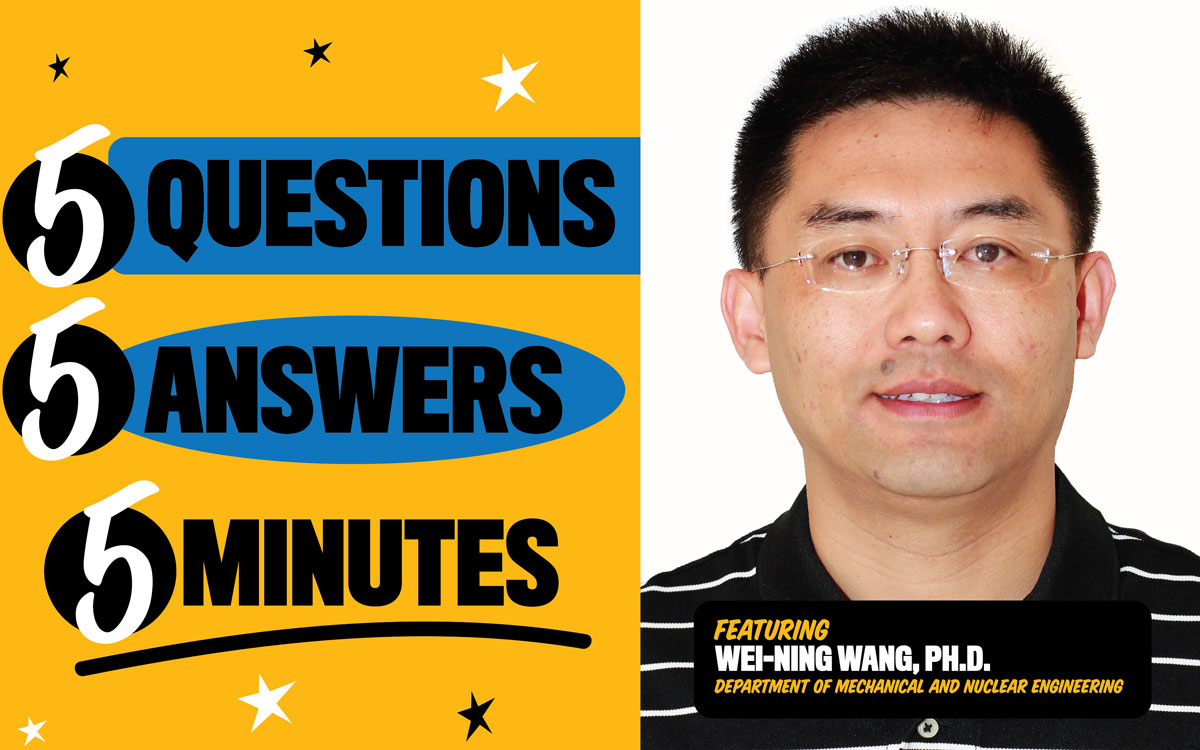Wei-Ning Wang, Ph.D., assistant professor in the Department of Mechanical and Nuclear Engineering, is an expert in aerosol-enabled technologies. His research focuses on using these technologies to address challenges in energy, the environment and human health.
1. What are you working on right now?
The major focus of my research is aerosol-enabled nanomanufacturing and heterogeneous catalysis. My goal is to help solve fundamental issues in both areas to address critical challenges in the sectors of energy, the environment and human health. Example areas of interest include toxic gas capture and conversion, indoor air quality control, water treatment, and targeted chemical/bio-sensing.
2. What do you hope to achieve with aerosol-enabled nanomanufacturing?
I hope to be able to develop advanced materials that are functional and affordable. These could include smart filters for the detection and removal of toxic gases and particles, as well as luminescent and magnetic materials for biomedical and energy applications. These materials should be designed with rational engineering approaches for limited impact on the environment. The ultimate goal of my research is to use these materials to improve human health and build a sustainable society.
3. What attracted you to researching functional materials?
With a global population that is now over 7 billion, we are confronted with critical energy and environmental challenges today more than ever. Although the answers to solve all of these problems are presently unknown, several aspects are clear. I strongly believe that research and innovation in sustainable energy related advanced functional materials, developed by environmentally friendly technologies, will play a critical role in meeting these challenges.
4. Who is working with you on this?
My research is interdisciplinary in nature. During the past several years, I have been fortunate to work with many excellent VCU faculty members in and out of the College of Engineering as well as those outside of the VCU community. I have also been enjoying working closely with several outstanding Ph.D. and undergraduate students in my lab, who have been making great contributions to the projects.
5. Has anything special about VCU helped move this project forward?
VCU is a great place for providing both research and education opportunities for students. In particular, there are several unique programs, such as Vertically Integrated Projects (VIP) program, Dean’s Early Research Initiative (DERI) and Richmond Minorities in Engineering Partnership (RMEP), through which I have recruited many undergraduate and high school students. They certainly helped move our projects forward.
Fun Fact: I tell my students that my name is pronounced as “WINNING,” with a hope to inspire them to grow as successful scientists and engineers.
